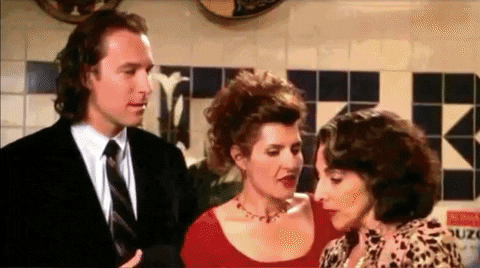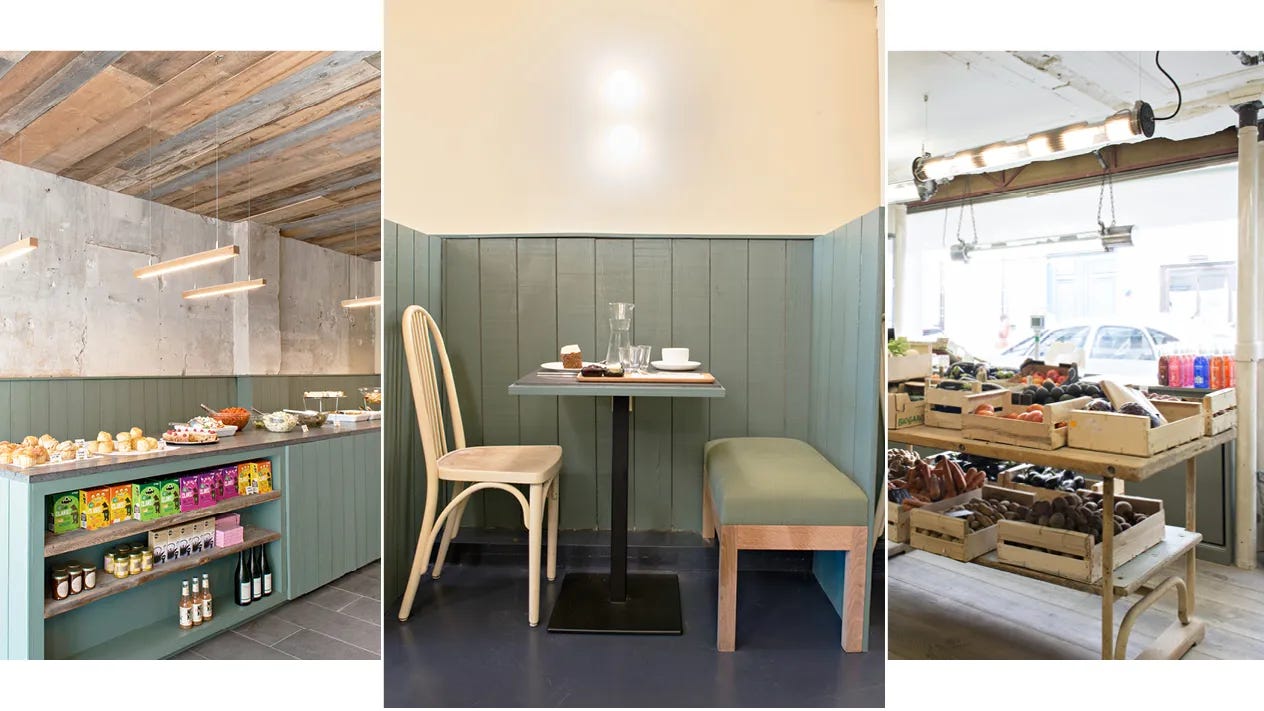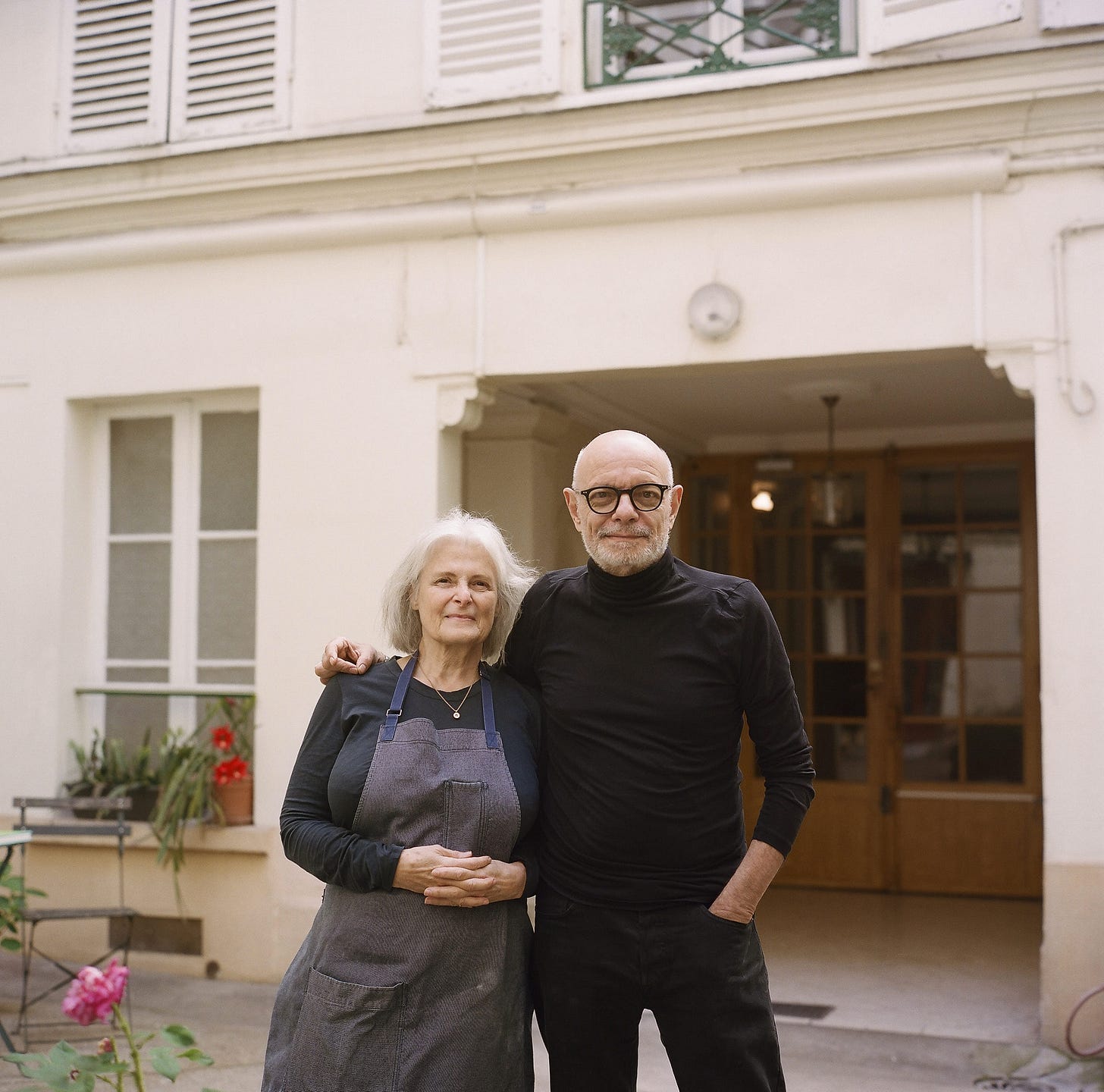A conversation with Rose Bakery co-founder Rose Carrarini
On 20 years of Rose Bakery, vegetable-forward cooking, and what has changed
Over the holidays, my husband and I hosted his omnivorous parents and our friend from out-of-town, someone who keeps almost exclusively to a vegetarian diet. Since he travels endlessly for work, he eschews fish and meat as a way of offsetting his impact. When we reminded my in-laws, who arrived bearing a giant bird with traditional stuffing, that our friend was vegetarian and didn’t eat meat, their reaction could have been pulled from a scene in My Big Fat Greek Wedding. “But it’s not meat,” they exclaimed. “It’s poultry!”
In fairness, they are in their 70s and 80s and won’t be overhauling their diet or views on the impact of what we eat on the environment. But the exchange reminded me of some of the standard responses and quizzical stares I used to see in the first few years I lived in Paris whenever someone mentioned eating vegetarian or requested a vegetarian option in a restaurant. Then, a salad with salmon at a café may have been labeled vegetarian and requesting any substitutions would be met with heavy sighs and, often, refusal. Servers would point to the protein-less rice or pasta dishes on the menu with a take-it-or-leave it attitude.
Aside from non-French cuisine (particularly Lebanese which has a long presence in Paris) and a handful of award-winning chefs who made waves emphasizing vegetables (among the earliest examples was Michel Bras in the Aubrac who launched the first all-vegetable menu option at his Michelin-starred restaurant in 1978), few challenged the starring role that meat and fish historically played on the plate. And those that did, like Le Grenier de Notre Dame in the 5th arrondissement, the first veggie restaurant in Paris, still open today, were swiftly maligned as hippie fare.
In other words, it would be many years before the balance would shift and there would be an understanding— both from a nutritional and environmental perspective — that the status quo wasn’t going to cut it anymore. That seemed to happen in lockstep with the broader food movements taking the city by storm, bistronomy chief among them, that I reported in The New Paris. But it also coincided with greater public awareness that consumers should be better informed about where their food is coming from and should expect restaurants to do a better job with transparency as well.
One of the most successful establishments to serve a largely vegetarian menu and go more mainstream than its forebears is Rose Bakery. After opening the first English and vegetable-forward canteen in the 9th arrondissement in 2002, Rose and Jean-Charles Carrarini cast a wider net: they’ve catered countless fashion shows and events and set up outposts in Le Bon Marché (a tearoom/café on the store’s 2nd floor), cultural institutions like the Musée de la Vie Romantique, the Maison de Balzac, the Jeu de Paume and the Bibliothèque Nationale de France (BNF) on rue de Richelieu, as well as Dover Street Market in London, NY, L.A., and Tokyo. It may not be the only actor on the block anymore— neither for predominantly organic veggie fare nor English-style cakes—but the Rose imprint remains ever-present.
Recently, I sat down with Rose to understand how she and Jean-Charles built the business and what changes she’s observed in more than two decades of operating in Paris. The following interview has been edited and condensed for clarity.
Most people have a vague idea that your foray into food began in London but may not know the details, nor how you and Jean-Charles met. What’s that story?
Well, that was quite a long time ago. We met in Liberty's in London, actually. I had just finished art college and was working there, and Jean-Charles was over from France, learning English. We worked in the fabric department together, that's where we met. We met in liberty. It's very romantic, no? (Giggles) We were very much babies, went out together for a couple of years, and then he went back to Paris, and I eventually started a knitwear business while he was away. I just wanted to do something creative, so I started making knitwear on a machine my father bought me. When Jean-Charles came back to London, he joined me and we grew the fashion business— that was in the 1970s.
We had babies and continued to grow the business globally but a funny thing happened whenever we traveled to Japan, Italy, or elsewhere for business. Our first stop off the plane was always a food market. It’s what we loved. After awhile, we just said enough with the fashion thing. People (retailers) pay six months late and we had a family to support. We spent a year researching and then opened up our little place on Marleybone High Street in 1988— not in fashion, in food.





